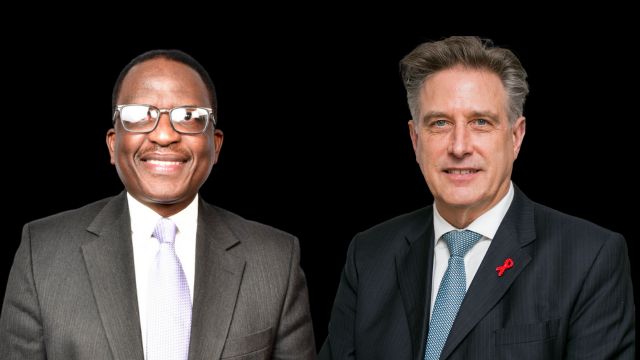
By Siya Hlebani
Amid increasing pressure on universities to focus on global rankings, research output, and graduate employability, a recent dialogue hosted at Rhodes University made a powerful case for re-centering community engagement and the public good. The event, Higher Education Community Engagement: The Cultivation of Humanity, positioned these values as essential to university success.
On 8 and 9 May 2025, Rhodes University hosted the dialogue, where Vice-Chancellor Professor Sizwe Mabizela and former Deputy Vice-Chancellor for Research and Innovation Professor Peter Clayton delivered compelling addresses.
Opening the dialogue, Professor Mabizela challenged the current orientation of universities, asking a question that has echoed across disciplines yet often goes unanswered: What are universities really good for?
Quoting from South African mathematician and academic leader Chris Brink’s thought-provoking work The Soul of a University, the Vice-Chancellor reminded us that a university’s worth cannot be determined solely by what it excels at, but by its contribution to the common good.
He spoke of the deep moral responsibility that institutions have to society, asserting that education must not be reduced to a transactional process of preparing students for the job market. Rather, he called for a reimagining of higher education as a platform for building ethical, empathetic, and socially conscious citizens. Drawing on the African philosophy of Ubuntu, he emphasised that "I am because we are" is not just a cultural saying but a guiding educational principle. A truly transformative university, he argued, should nurture individuals who recognise their interconnectedness with others and act in service of the collective well-being.
One of the key messages from the Vice-Chancellor’s address was the need to humanise universities. He urged institutions to be places of belonging, compassion, and justice – environments where dignity is upheld and where knowledge is not only accumulated but also used to improve people’s lives. He challenged the room to consider who is included in the production of knowledge and who benefits from it. Emphasising the need for inclusive scholarship, he stated, “We must do research with communities, not just in or on them.”
Professor Mabizela’s vision extended beyond theoretical ideals; it was a call for structural change. He argued that universities must embed community engagement at the core of their operations, not as an add-on or outreach effort, but as a central pillar of their institutional identity. This, he said, requires humility, authenticity, and a willingness to dismantle hierarchies that have historically excluded community voices from academic discourse.
Closing the dialogue on 9 May, Professor Clayton picked up the baton and reiterated the urgency of Professor Mabizela’s message. He reflected on the rich discussions held during the two-day event and affirmed that the future of higher education must be deeply rooted in human values. He praised Professor Mabizela’s opening remarks as a timely and bold intervention, one that challenges universities to align their goals not just with academic success, but with human flourishing.
Professor Clayton emphasised that cultivating humanity is not an abstract or lofty goal—it is a practical, everyday commitment that must inform everything from curriculum design to institutional culture. He urged university leaders and academics to adopt a posture of reflection, action, and accountability, reminding them that values like empathy, justice, and solidarity should not be optional extras but core outcomes of a university education.
He echoed the Vice-Chancellor’s call to co-create knowledge with communities, emphasising that this model of engaged scholarship can transform not only the university but also society at large. Such engagement, he said, fosters mutual learning, respect, and shared purpose. It breaks down barriers between the ‘ivory tower’ and the lived realities of people beyond the campus gates.
Both spoke to the idea of restoring the soul of the university. In a world marked by division, inequality, and disconnection, the university must serve as a moral compass, guiding students toward not only professional competence but also social consciousness. In doing so, institutions would move from being simply knowledge factories to becoming hubs of hope, justice, and shared humanity.
As Professor Clayton closed the dialogue, he invited everyone to carry forward the insights and ideals articulated by Professor Mabizela – not just as intellectual inspiration, but as practical imperatives. He encouraged universities to build cultures that enable staff, students, and surrounding communities to thrive together and to never lose sight of their deeper purpose.
The dialogue concluded with a powerful message: that true university excellence is measured not only by achievement, but by its contribution to humanity.
